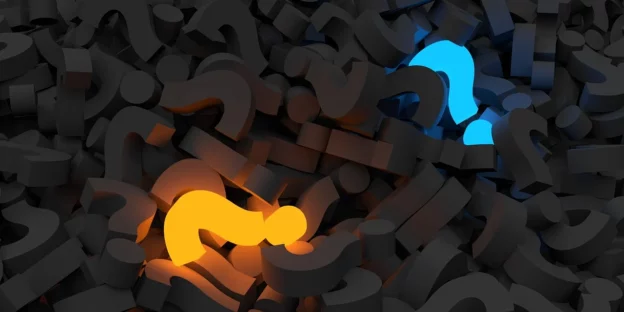An episode about the tricky little questions that we use when socialising. What are the appropriate answers? What are the subtle differences? How do native speakers use these questions? Can you take the test and get all the right responses to my list of deceptively difficult questions?
![]()
[DOWNLOAD]
25 Deceptively Difficult Questions – Proper Introduction Transcript!
Hi everyone,
This is an episode about social English, the kind of English you use when you’re socialising, particularly the little things you say when you greet someone or at the beginning of a conversation.
There are many ways to say “hi” and also lots of ways to say “how are you?” or “what are you doing?” The tricky thing is being able to judge the subtle differences in the questions with the presence of auxiliary verbs or modals which change the meaning slightly from the past, to the present to the future or with slightly different levels of formality.
I’d like to do a test in this episode today. I am going to test you, so get ready.
A Test
Here’s what’s going to happen.
I’ve prepared a list of 25 questions. I’m going to read them to you in a moment.
As I say each question, what I want you to do is to think really quickly and really naturally about the first thing you would normally say when you hear that question. What’s the first answer that comes into your mind?
Let’s see if you answer correctly.
To find out the proper answers we’re going to listen to me directing those questions at Amber, Paul and Sarah. Then you can listen out for how they answer them and the comments we make afterwards, which should explain these tricky little bits of English.
Not only can you learn some essential social English in this episode, you can also hear plenty of humorous conversation between the four of us.
Sarah’s baby is also there in the background. I’m sorry if this bothers anyone. I’ve removed some of those noises but a few are still there. I think it sounds fine and adds a bit of atmosphere and after all she is a very cute baby.
So, the test. Let’s get started.
Are you ready? Just give the first answer that comes to mind.
Also, you should know that some of the questions are intentionally incorrect. So, if you hear a question which is grammatically wrong or just not used ever, you can say “wrong”.
Ok, so, your quick answer to the question, or “wrong” if it’s incorrect.
I’ll say the question once quickly, once slowly and once again quickly.
Some of these questions may seem extremely simple – the point of this is the pragmatics of social English and how you should give certain stock answers to some questions. They get a bit harder as they go along.
Also, you can try to repeat the questions too.
They’re going to come pretty quick, so use the pause button if you want.
Here we go. You might think these are easy, but that’s why this is called ‘deceptively’ difficult questions.
*4 questions are intentionally incorrect. Can you spot them?
- What are you doing?
- How are you doing?
- How’s it going?
- How are you going?
- What’s happening?
- What’s going on?
- What’s going down?
- What’s going up?
- What’s up?
- How do you do?
- How are you?
- How have you been?
- How have you been up to?
- What are you up to?
- What have you been up to?
- How long has it been?
- Can I use your phone?
- I can’t use your phone, can I?
- Do you mind if I open the window?
- You don’t mind if I open the window, do you?
- What are your plans for later?
- What are you up to later?
- Can you tell me where is the best bar in town?
- Do you know how long is it going to be?
- Would you be prepared to give me a 5% discount?
Ta = thanks
You’re now going to hear all those questions and how Amber, Paul and Sarah will respond to them. See if you got them right or wrong!
I’ll go through them again quickly at the end.
Listen to the whole episode for all the correct answers and explanations.
Don’t be a ninja! Let me know your thoughts in the comment section.
Cheers!
Luke
